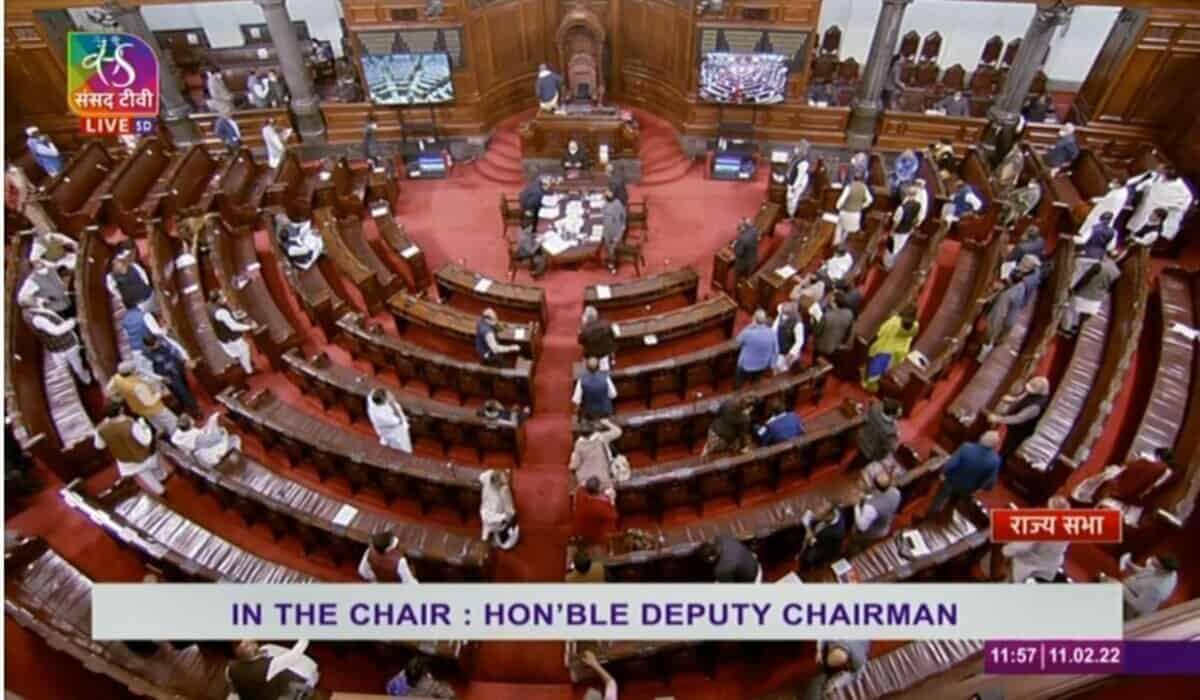
Elections and defections go together despite stringent anti-defection laws in the country. The law proves ineffective as the legislators are lured by money and position. The lawmakers skirt around the rules, find loopholes to their advantage, and defy them.
In last week’s Rajya Sabha polls, Rajasthan’s BJP legislator Shobharani Khushwaha, Congress’s Haryana MLA Kuldeep Bishnoi, and JD(S) lawmaker from Karnataka Srinivas Gowda are classic examples.
Cross-voting occurs even in presidential and vice-presidential elections despite stringent anti-defection laws.
Vice President M. Venkaiah Naidu recently commented that the anti-defection law must be amended to rectify the loopholes. Naidu, also the Chairman of the Rajya Sabha, said there was no clarity about the time frame for the Speaker or Chairman of the Rajya Sabha to decide on anti-defection cases. “There are certain loopholes in the anti-defection law. It allows wholesale defection. But retail defection is not allowed. Amendments are required to plug the loopholes,” Mr. Naidu said.
The Vice President’s comment is significant because elected representatives have been familiar with party-hopping tactics for decades. The defecting lawmakers have found a way to skirt the restrictions in the Tenth Schedule. Instead of formally “crossing the floor” or voting against their party in a confidence motion, they resign from the party. Some of them come back in the bye-elections.
In the past, there have been some bizarre cases. Gayalal, an independent MLA in Haryana, first joined the Congress Party in 1967; by evening, he shifted to the United Front, and within 9 hours, he re-joined the Congress party. What was more, he returned to the United Front within a fortnight. This case is known as ‘Ayaram, Gayaram “in political circles.
The 2003 amended law prescribed the penalty for shifting political loyalties: the loss of membership and a bar on becoming a minister. The law has been contested in courts multiple times. I
Under the anti-defection law, unlimited powers are given to every political party to put down dissent or an alternative view. However, recent developments in many states show that it does not check defections.
To keep the flock together, parties often play resort politics by shepherding them to some resort, sometimes outside the state. Defectors have shown this trend many times-Rajasthan (2020), Maharashtra (2019), Karnataka (2019 and 2018), and Tamil Nadu (2017). In March 2020, Jyotiraditya Scindia and 22 Congress MLAs resigned, resulting in a government change in Madhya Pradesh. In Rajasthan, six BSP MLAs merged their party with the Congress, and in Sikkim, 10 of the 15 MLAs of the Sikkim Democratic Front have joined the BJPin 2019. The list goes on.
Critics point out that the law’s main issue has been the presiding officers’ full authority to decide on the anti-defection petition. Initially, the decision of the Presiding Officer was not subject to judicial review. The Supreme Court struck down this condition in 1992. The Apex court intervened again in July 2019 when ten Congress MLAs and two Maharashtrawadi Gomantak Party MLAs defected to the BJP and were rewarded with ministries. The court prescribed a maximum of three months for deciding on anti-defection cases in 2020.
How could the loopholes be plugged in? In the past, expert committees have recommended that rather than the presiding officer, usually a ruling party member, the decision to disqualify a defector should be vested in an independent agency. However, political parties oppose this change, mainly ruling parties at the centre and states.
Parliament needs to look at the law afresh because of the continuing trend of horse-trading. IN recent times the Supreme Court also observed, “It is time that Parliament has a rethink on whether disqualification petitions ought to be entrusted to a Speaker as a quasi-judicial authority when such Speaker continues to belong to a particular political party either de jure or de facto. Parliament may consider amending the Constitution to substitute the Speaker of the Lok Sabha and Legislative Assemblies as an arbiter of disputes concerning disqualification under the Tenth Schedule.”
The Presidential polls were announced last week, and there are apprehensions about cross-voting. The best way is to tweak the law. Defectors should be barred from holding public office for a reasonable period, and the vote cast by a defector should be considered invalid. The electorate should also have a right to recall the representative. Resort politics should also be banned.
The mass exodus of MLAs from the vanquished Congress to winning parties shows no respect for the anti-defection law. As long as givers and takers are there, the defection will not stop. What is needed is the political will, and all parties should come together and look at the law afresh.
